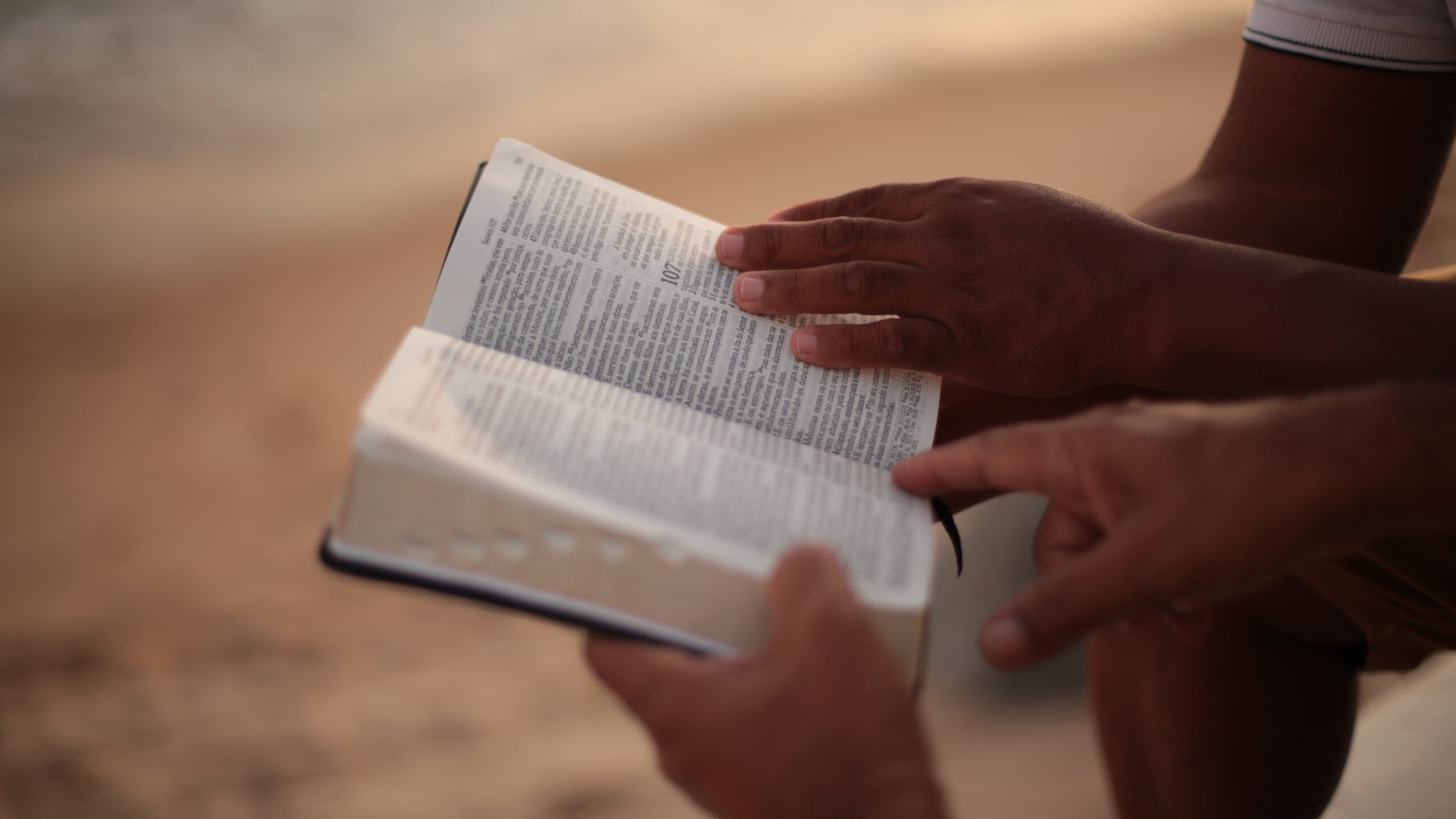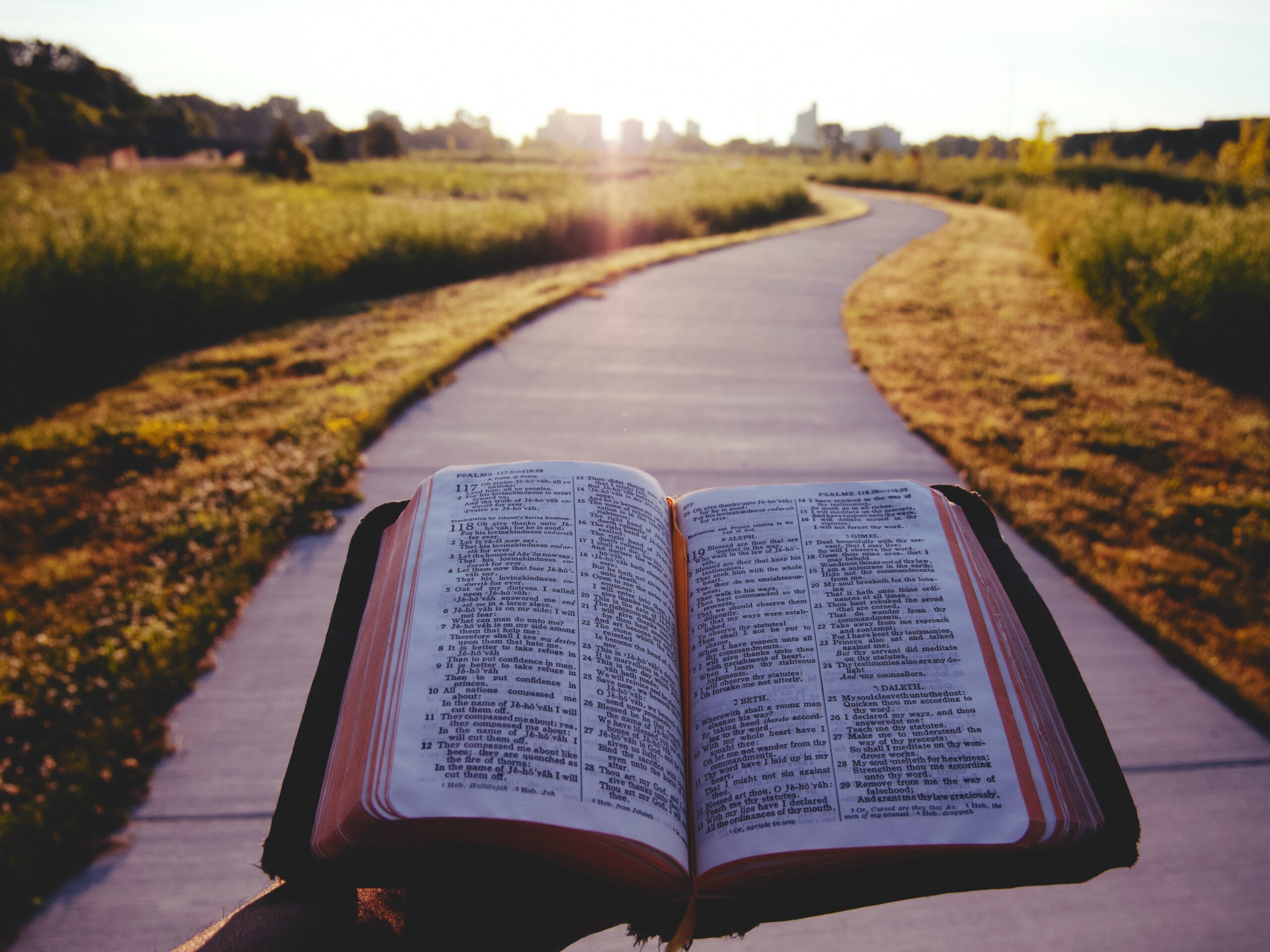(1) Now there were some present at that time who told Jesus about the Galileans whose blood Pilate had mixed with their sacrifices. (2) Jesus answered, “Do you think that these Galileans were worse sinners than all the other Galileans because they suffered this way? (3) I tell you, no! But unless you repent, you too will all perish. (4) Or those eighteen who died when the tower in Siloam fell on them—do you think they were more guilty than all the others living in Jerusalem? (5) I tell you, no! But unless you repent, you too will all perish. (6) Then he told this parable: “A man had a fig tree, planted in his vineyard, and he went to look for fruit on it, but did not find any. (7) So he said to the man who took care of the vineyard, ‘For three years now I’ve been coming to look for fruit on this fig tree and haven’t found any. Cut it down! Why should it use up the soil?’” (8) “Sir,” the man replied, “Leave it alone for one more year, and I’ll dig around it and fertilize it. (9) If it bears fruit next year, fine! If not, then cut it down.” Luke 13:1-9
On September 11, 2001 television viewers around the globe watched in horror as both the World Trade Center and the Pentagon were attacked, resulting in the deaths of nearly 3,000 people. Less than ten years later on March 11, 2011, a powerful earthquake in the Pacific Ocean caused a tsunami that struck Japan, killing 19,000. More recently, on April 15, 2013, two bombs exploded during the annual Boston Marathon, killing three innocent bystanders. Then a few weeks later, on May 20, 2013, a powerful F5 tornado plowed through Moore, Oklahoma, leaving 23 dead. Between television, the internet, cell phones and social media, we have instant access to tragedies as they occur around the world, and these tragedies seem to have become common everyday occurrences. And we want to know why God allows tragedy to happen.
I have to admit that I too have struggled with these thoughts at times. When I see tragedies continue to strike the same geographic regions, such as Haiti or Tornado Alley here in the States, I have wondered if the people there committed some particularly bad sins and, therefore, God is judging them. Although many people think this way, it is not biblically correct. It helps to know that, even in Jesus’s day, many Jews had similar thoughts. They believed that bad things happened to bad people as a result of their sins. For example, in John 9:1-3, we read, “As he went along, he saw a man blind from birth. His disciples asked him, ‘Rabbi, who sinned, this man or his parents, that he was born blind?’ ‘Neither this man nor his parents sinned,’ said Jesus, ‘but this happened so that the work of God might be displayed in his life.’” Thus, many Jews believed that human tragedy and illness were due to sin.
Back in 1861, a couple of great disasters occurred in London. First, a train wreck killed 23 people, and then many more were killed when a tunnel collapsed. On September 8, 1861, Charles Spurgeon decided to speak about these tragedies during his Sunday sermon in order to address the many questions that perplexed church members. In fact, he used Luke 13:1-9 to dispel the absurd idea that God killed those people because they were traveling on a Sunday. Apparently, some of his flock had begun to think that if a person sinned on the Sabbath, God may kill him in a tunnel disaster or cause his train to crash. Spurgeon pointed out, “We wouldn’t have a congregation if that was the way God operated.”
Perhaps the question we should be asking is not “why” but rather “what?” What does it mean when two towers are struck by planes and thousands of people are killed indiscriminately? Instead of asking “Why?” in regard to suffering, we should begin to ask “What?” What can we learn from this tragedy?
Through this devotional series, I will offer four truths that we should remember the next time we hear about a tragedy. Here is the first truth: Tragedies are a part of life.
In this passage of Scripture, we learn about a tragedy that took place at the Temple. It seems that Galilean Jews, who were known for their rebellion, either broke a Roman law or did something that caused Pilate to deem them dangerous. Regardless of the motive behind the massacre, Pilate sent troops to the Temple while the Jews were making sacrifices to God, and they proceeded to slaughter the Jews, which resulted in Jewish blood being mixed with the blood of sacrifices.
Those who inquired of Jesus were not expressing their sorrow over this tragedy remembered in Luke. On the contrary, they were asking, “Teacher, these people were known to be dangerous lawbreakers; didn’t they get what they deserved?”
You see, in our hearts, many of us believe that God makes good things happen to “good” people and bad things happen to “bad” people. The Bible does contain a general principal in which blessings flow to those who walk in obedience to God, and sinners reap the consequences of their sinful ways. However, there are many exceptions to this principle. For instance, consider Job; he underwent multiple tragedies despite the fact that the Bible describes him as “blameless” and “upright.” Throughout the Bible, there are times when godly men, like John the Baptist, are killed and die at an early age, yet others, who are evil, like Herod, live a long life. Bad things often happen to good people, and good things often happen to bad people. Jesus said in Matthew 5:45, “He causes his sun to rise on the evil and the good, and sends rain on the righteous and the unrighteous.”
Remember, we live in a fallen world. Our world is under God’s curse where it will remain until the curse is lifted, and I believe that day is fast approaching. Revelation 22:3 states, “No longer will there be any curse.” I don’t know about you, but I look forward to the day when the curse will be no more. The next time we hear about a horrible tragedy and our minds begin to race, remember Jesus’s promise that one day the curse will be removed, but until that day arrives, tragedies will continue to be a part of life.
Next week we will consider another truth we should remember when we hear about a horrible tragedy. Stay tuned. Amen.



